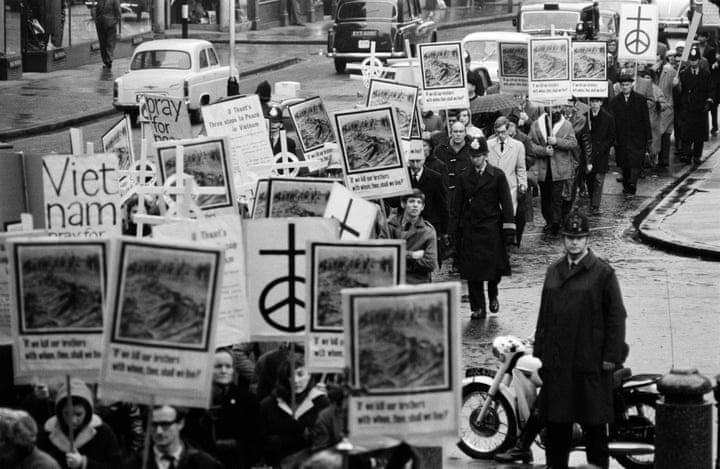![]() As a child, my knowledge of the Vietnam conflict would be something that had influence but which would remain largely unknown about until I was quite a lot older and the war had ended.
As a child, my knowledge of the Vietnam conflict would be something that had influence but which would remain largely unknown about until I was quite a lot older and the war had ended.
Dubbed the second of the Indochina Wars the war was officially fought between North Vietnam and the government of South Vietnam.
The North viewed the conflict as a colonial war and a continuation of the First Indochina War against forces from France and subsequently the U.S.
It can be generally agreed, that like the wars in other parts of the world, the Vietnam war was a proxy conflict in the Cold War. The United States and other western nations responded to aggressive postures by communist bloc nations which resulted in dramatic displays by America. Most took place in four countries divided between communist and non-communist regimes after World War II: Germany, China, Korea and Vietnam.
 But there were also the ‘hidden wars’ where American and other agencies worked with pariah states like South Africa and Rhodesia to deal with communist backed “revolutionaries” and to keep countries out of the hands of communist control in civil wars. Among these, were countries like Mozambique , Angola and the Congo.
But there were also the ‘hidden wars’ where American and other agencies worked with pariah states like South Africa and Rhodesia to deal with communist backed “revolutionaries” and to keep countries out of the hands of communist control in civil wars. Among these, were countries like Mozambique , Angola and the Congo.
What we, as children in Southern Africa knew, was that part of the struggle that our brothers and fathers were participating in was a war against forces backed by Soviet and Chinese communists.
In March of 1966 as many as 200,000 protestors attend anti Vietnam war protests around the world with one of the largest being held in when 4,000 protesters demonstrated against the war in London outside the American Embassy. At least 31 were arrested.
Later in the year a group of students staged a sit-down protest around a Navy recruiter table in the University of California Berkeley Student Union. Several protesters were arrested there also.
 Of some significance, was the celebrity weigh-in of heavyweight boxing champion Muhammad Ali– formerly known as Cassius Clay– declaring himself a conscientious objector and refusing to go participate.
Of some significance, was the celebrity weigh-in of heavyweight boxing champion Muhammad Ali– formerly known as Cassius Clay– declaring himself a conscientious objector and refusing to go participate.
Gallup Polls of the time showed the American Public Support declined, from over 52% support for war to around 37% . Anti-Vietnam War Protests would continue for five more years as popularity continued to decline. America formally ended participation in the war in January 1973 following the signing of the Paris agreement.
Americans still cannot agree on how to characterize the long, costly and ultimately unsuccessful American military involvement in Indochina.